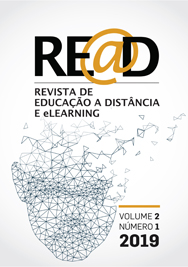Das Competências de uso das Tecnologias Digitais ao exercício pleno da Cidadania Digital: os casos do Alentejo e do País Basco
DOI:
https://doi.org/10.34627/vol2iss1pp9-25Keywords:
Digital citizenship, digital literacy, digital skills, ICT-mediated experiences, digital inclusion programmes.Abstract
Informed participation in collective decision-making processes requires better educational levels, a wider range of digital skills and access to technologies. In a global digital society this process is part of the exercise of informed citizenship.
Digital citizenship presupposes participation mediated by access and, above all, by the critical use of digital technologies in social decision-making processes. Digital literacy is closely linked to digital citizenship. From a broader perspective than technological literacy, it involves the development of key skills that counteract social exclusion and therefore represents a valuable mechanism for combating it, especially in social groups at risk.
Digital competences are part of the key competences of lifelong learning and are directly related to the concepts of digital citizenship and democratic participation. In this sense, it is important to know the levels of digital literacy in different social groups in order to then meet their needs through programmes and other training initiatives.
In this article, we analyse the concepts of digital citizenship, digital literacy and digital skills for the 21st century, as well as the relationships between these concepts. Subsequently, partial data on an ongoing research on digital programmes in Alentejo and the Basque Country, such as the empowerment pathway, are presented. As a general conclusion, we would like to highlight the monitors’ perspectives in what concerns the changes in the habits of users of Internet Access Spaces and KZgunea Centres.
Downloads
Published
Issue
Section
License
Copyright (c) 2021 Luísa Aires, Ricardo Palmeiro, Visitación Pereda

This work is licensed under a Creative Commons Attribution-NonCommercial 4.0 International License.
Os autores conservam os direitos de autor pelo seu trabalho e concedem à revista o direito de primeira publicação, com o trabalho simultaneamente licenciado sob uma Licença Creative Commons - Atribuição-NãoComercial 4.0 Internacional.



